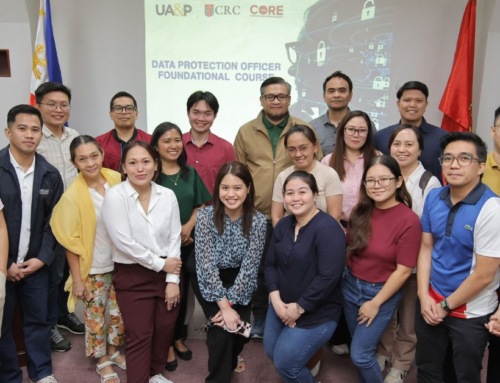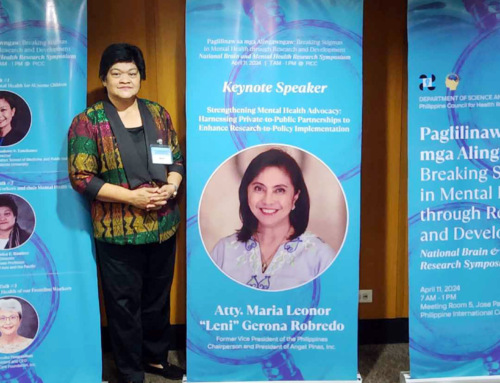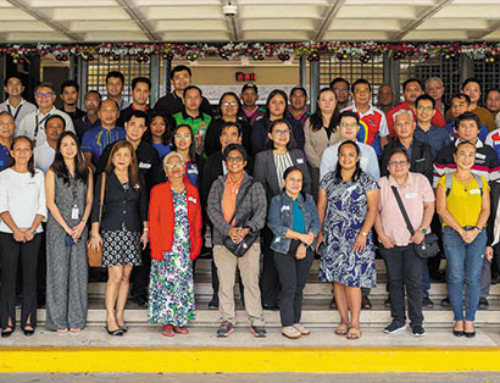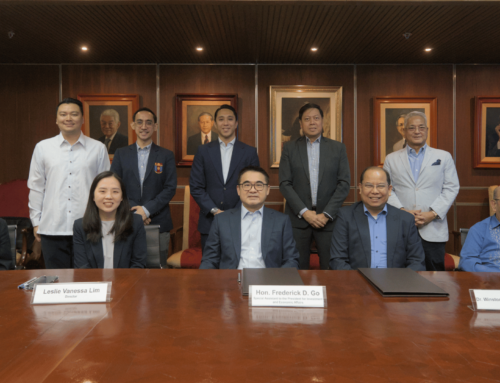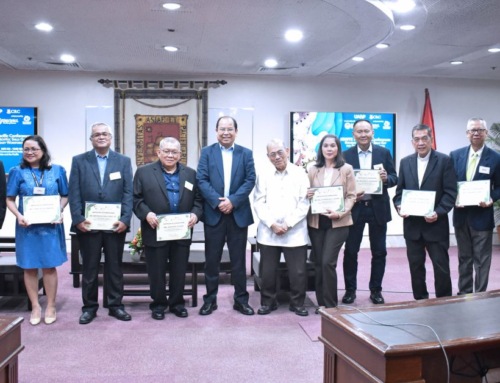University of Asia and the Pacific, with the following aims:
- Foster the culture of research among faculty in UA&P;
- Encourage collaboration among faculty from different disciplines;
- Produce innovative research output that pushes the frontiers of knowledge and provides value to society;
- Encourage mentoring of faculty and staff in research; and
- Create value networks (through high-impact publications and fora; progressing from academic research towards social interventions, and/or marketable products and services)
The funding shall cover any of the following items:
- Logistical and administrative expenses that will be incurred from research activities, e.g. funding for research assistants or graduate student assistants, transportation, accommodation for field research, duplication of survey instruments, etc.;
- Expenses for communication activities, e.g. book publication or conduct of conference on research results. Research projects funded by the CRCFI Research Fund may be basic, applied, or for experimental development. Experimental development projects are those for new program offerings or significant improvement of current programs. A total amount of PhP 900,000 every academic year will be provided by CRCFI for the Fund, to support various research projects.
REQUIREMENTS:
Applications shall be accompanied by evidence of the following: Faculty Qualification
- Research grants are awarded to permanent full-time faculty members as Principal Proponents. • In highly meritorious cases and upon the recommendation of their respective Operations Committees (OPCOMs), full-time probationary faculty members may be considered as principal proponents of research projects. In these cases, the duration of funded research activities should not go beyond the term of probation.
- Part-time faculty who have served UA&P for at least ten (10) semesters, preferably with a doctoral degree, may be Co-Proponents of research project proposals.
- Part-time faculty members who do not yet meet the ten-semester requirement, graduate students, and non-teaching staff may be included as Project Team Members; provided that the contributions of graduate students and non-teaching staff are reviewed by a faculty proponent, co-proponent, or project team member to meet research standards.
- Additional consideration will be given to proposals with at least one proponent or team member who can present evidence of a good track record of accomplishing projects, research or otherwise.
Types of Research Proposals Accepted
- Initial Basic, Applied, or Experimental Development Research Initial research that aims to jumpstart a bigger, long-term project whether basic, applied, or experimental development. Basic or fundamental research involves experimental or theoretical work undertaken to acquire new knowledge, while applied research involves an original investigation undertaken to acquire new knowledge towards a specific practical aim or objective. Experimental development research aims to acquire, combine, or shape the use of existing scientific, technological, business and other relevant knowledge and skills, which results in the production of plans, arrangements or designs for new or improved products, processes or services.
- Research that advances the University Research Agenda. (Kindly note that the corollary themes are not intended to limit research under the major themes.)
- Research proposals on current issues such as gender equality, conscientious objection, religious freedom, freedom of expression, bioethics, and media issues.
- Research proposals on challenges of the business environment, such as the business impact of climate change; the impact of sudden government policy changes on business; Artificial Intelligence and the Fourth Industrial Revolution; and related topics
- Policy research
- Research projects that need supplementary funding: this pertains to projects that have already been awarded partial funding elsewhere, and need help in their development and/or completion
- Projects to help new doctoral-level faculty members (who received their degree within the last two academic years) to develop their research activity further, e.g. expanding on their dissertation.
Submission of Proposals
- For Academic Year 2018 – 2019:
a. In August 2018, CRC will launch the Research Fund, together with a call for proposals accompanied by communication plans. CRC will refer proponents who need assistance in preparing budgets to the UA&P Corporate Planning and Review Office (CPR) for help in budget preparation.
b. The deadline for the submission of project proposals to CRC, in hard copy or electronic format (the latter through email address [email protected]), will be on September 30, 2018. This date will be posted and announced through the usual channels. Late proposals will be considered for the following academic year.
c. The Selection Committee will choose proposals for funding by the last week of October 2018. - For Academic Year 2019 – 2020 and onwards:
a. In the month of April, CRC will issue a call for proposals accompanied by communication plans; and will refer proponents who need assistance in budget preparation to the CPR Office.
b. The deadline for the submission of project proposals, in hard copy or electronic format, to CRC will be on June 30th, and will be strictly observed. This date will be posted and announced through the usual channels. Late proposals will be considered for the following academic year.
c. The Selection Committee will choose proposals for funding by the last week of July.
GENERAL GUIDELINES & EVALUATION CRITERIA for RESEARCH PROPOSALS
Criteria for Approving Project Proposals
- A project may be approved in consideration of the following:
a. Proponents and team members may be involved in only one Research Fund project per year. • CRC will ask a principal proponent, co-proponent, or team member who is in two different proposal submissions to choose which proposal s/he prefers; and will ask the members of the other proposal to select a replacement member, if needed.
b. A project proposal with complete details, including the project budget allocation and communication plan. The latter should include at least one of the following: i. Submission of an article to a peer-reviewed and reputable academic journal, with premium given to internationally indexed scholarly journals; ii. Submission of a book chapter to a reputable academic anthology; iii. A book publication for specialist or non-specialist readership; and/or iv. Conduct of conference(s) and similar fora. As much as possible, revenue generation is to be kept in mind; thus, additional consideration will be given to revenue-generating communication activities or other activities.
c. Proposals will be reviewed by the Research Ethics Committee to be formed by CRC. Recommended revisions will be returned to the proponents for implementation. The Committee’s review will cover the following areas: i. Coherence with the moral teachings of the Catholic Church; ii. Voluntary and informed consent procedures for research participants; and measures to safeguard any subject-at-risk participants; iii. Compliance with the Data Privacy Act, Intellectual Property Code, and other related laws; iv. For health-related studies: measures to reduce health risks of research participants v. Environmental impact of the proposed research activities; and proper disposal methods if any hazardous materials will be used.
d. The project will contribute to the University Research Agenda; clarification of complex issues or business challenges; or will be a policy study, a currently-funded project in need of additional funding, or a development of research activity for new doctoral-level faculty, as cited above in the section Types of Research Proposals Accepted. - The project can be completed within one (1) academic year, from the signing of the Terms Of Reference (TOR) and project start, until submission of the final report on or before June 30; including submission of an article to a peer-reviewed journal; submission of a book chapter to an academic anthology; or implementation of other communication activities.
a. For Academic Year 2018 – 2019: from TOR signing and project start in the first week of November 2018, until June 30, 2019.
b. For Academic Year 2019 – 2020 and onwards: from TOR signing and project start in the first week of August, until June 30 of the following year.
c. For full-time probationary faculty who are principal proponents, the main research activity shall be completed within the term of their probation; with academic article/book chapter submission, or implementation of communication activities by co-proponents or team members, allowed after probation but before the June 30th deadline for the final report. - The budget for each project proposal should have a maximum amount of PhP 225,000 for proposed research and communication activities from project start until June 30th of the following year. The funding may cover any of the following aspects:
a. Logistical and administrative expenses that will be incurred from research activities, e.g. funding for research assistants or graduate student assistants, transportation, accommodation for field research, duplication of survey instruments, etc.
b. Expenses for communication activities, e.g. publication of a book or conduct of a conference on the research results.
Procedure for Selection and Approving Bodies The following shall review and recommend approval for awarding of the grant:
- The proponent/s shall submit their research proposal to CRC within the allowed time frame.
- CRC will send the research proposal to the main proponent(s)’ School OPCOM for endorsement.
- Once the OPCOM endorsement is obtained, CRC will send the proposal to the Research Ethics Committee for review.
- After the proposal passes the assessment of the Research Ethics Committee or is revised according to their recommendations, it is then submitted to the Research Fund Selection Committee, which shall follow a double-blind process in choosing the best proposals for each academic year.
- Additional Consideration Will Be Given for the Following Criteria:
a. Proposals with at least one full-time, doctoral-level principal proponent; or at least one full-time, non-probational principal proponent; or at least one doctoral-level co-proponent;
b. Evidence of a good track record of project accomplishment, from at least one principal proponent, co-proponent or project team member;
c. Revenue-generating communication activities or other activities;
d. Multi-disciplinary or inter-disciplinary research proposals;
e. Arrangements for mentoring of faculty, graduate student or non-teaching staff project team members in research techniques and practices;
f. Proposals that would explore new research areas;
g. Proposals that would contribute a major development to a current line of research; and
h. Proposals to develop the research results into an implementable social intervention, or a product, service or process that creates market value. - The research proposals chosen by the Selection Committee will be forwarded to CRC through the R&E OPCOM for confirmation of the selected research proposals for funding. For Academic Year 2019 – 2020 and onwards, the recipients of the CRC Research Fund shall be announced during the University Day Lecture in mid-August.
Fund Release and Disbursement
The research grant will be released in three tranches.
- For Academic Year 2018 – 2019: a. 33% of the grant shall be released upon signing of the terms of reference in November. b. The next 33% shall be released upon submission of the first progress report in January. c. The last tranche shall be released upon submission of the second progress report in April.
- For Academic Year 2019 – 2020 and onwards: a. 33% of the grant shall be released upon signing of the terms of reference in August. b. The next 33% shall be released upon submission of the first progress report in December. c. The last tranche shall be released upon submission of the second progress report in April.
- No disbursement of funds in excess of the approved budget is allowed. However, those with exceptional cases may file a request for additional funds to CRC, through the Research and Extension Operations Committee.
- Fund disbursement is subject to the prompt submission of progress reports and liquidation of previous cash advances.
- Purchases and liquidations should be supported by acceptable cash invoices/original official receipts (e.g. BIR registered receipts).
Monitoring of Research Progress
- Two progress reports and a final report are submitted to the Center for Research and Communication by the project proponents.
- Proponents shall attach photos of research activities, implemented communication activities, and other revenue-generating activities to the progress reports and final report.
- Submission of progress reports is prerequisite to subsequent fund release.
Research Output
- Two (2) hard copies and one (1) electronic copy of the final report should be submitted to CRC on or before June 30.
- Project proponent/s are required to submit research outputs in publishable form (e.g. following the format of a manuscript for a journal article or chapter for an academic book).
Completion of Research Project
- A project is considered provisionally complete upon acceptance by CRC of the final report/research output (with or without revisions).
- A project is considered complete upon compliance with the above provision and submission of the following requirements:
a. A one-page abstract, synopsis or description of the final output submitted for publication in an academic journal, chapter in an academic book, specialist or non-specialist book, or summary of communication conference(s) or seminar(s);
b. The communication plan and possible revenue, as well as evidence of implementation (e.g. signed and approved printing quotes and book mockup for a non-specialist publication, photos and documentation for a conducted conference, etc.);
c. Two hard copies and one electronic copy of the final report for CRC; and
d. Liquidation of funding received and cash advances (where applicable).
Thank you and we look forward to working with you to help foster the culture of research in the University.

